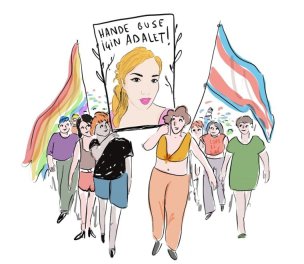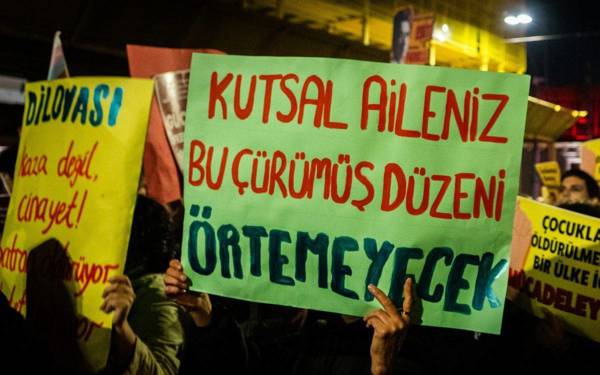*We want a world without bosses and pimps
Click to read the article in Turkish
Today is the International Day to End Violence Against Sex Workers.
After it was revealed that serial killer Gary Ridgway murdered dozens of sex workers in the US in the 1980s and 1990s, thinking that nobody would pursue the killings, activists led by Annie Sprinkle, a sex worker and an academic, marked the day for the first time in 2003.
In Turkey, sex work is an unsafe and unregistered field. Because no records are kept, it is quite difficult to obtain reliable data.
While it is claimed that there are about 100,000 sex workers in Turkey, NGOs working in the field find this figure unrealistic.
More troubles in the time of the pandemic
The most common problems for sex workers in Turkey are violence and precarious working conditions, along with lack of access to the right to work during the pandemic.
Cansu, a trans sex worker, says, "We are kicked out of home, we are exposed to violence on the street. There are so many cases of violence that [I don't know] which one to tell you.
"Even if it doesn't happen to me, it happens to my friends. We are surprised by how we survive in this system. We are alive by luck. We have no security," she says. "Being gay, being trans, being sex worker... All are disadvantages. I work 12 hours a day."
Currently studying at a university's history department, Cansu says she had to drop out of her first school because of homophobic attacks and speech.
CLICK - Police detain trans women, cordon off their street 'to prevent coronavirus spread'
"I wonder very much about history studies and the past," she says. "This is why I've chosen this department but I can't attend my classes because of economic conditions and the difficulties of work life."
Noting that their applications are not taken seriously at police stations, she says that her biggest dream is to do her job without the danger of violence.
Sex workers' rights
Evrim Demirtaş, an attorney for the Red Umbrella Association for Sexual Health and Human Rights, says that sex workers are one of the occupational groups that are stigmatized and discriminated against the most.
"All these stigmatization, violence and penal sanctions make it impossible to make precise statistics of the violence that sex workers experience," she says, noting that even some human rights groups have a "moralist" and "prejudicial" view about sex workers.
"[Sex workers] are held responsible for the stigmatization, abuse and violence they experience. However, instead of blaming sex workers for the violence they are exposed to and supposedly saving them, policies that support them are needed.
The Red Umbrella Association's interviews with sex workers (Auto-translated English subtitles are available):
"Your policies and all the experience as a result of those should teach you that sex work is not a work to be fought against.
"The legislation covering sex work in Turkey was actually shaped with a regulatory point of view. Regulatory legislation, different from prohibitive and preventive systems, does not include sex work within the scope of the penal code.
"Employing sex workers at licensed places while regularly performing health checks on them can be considered within this type of legislation.
"When we look at the practice, it's possible to observe from their actions and procedures that the administrative organs in Turkey have switched to a prohibitive system. And I think the reason for this is moving away from being scientific and acting on moralist prejudices.
"We all know that public authorities' reasons are mostly based on protecting public health but the fact that they are making this prohibitive and punitive pushes sex work and sex workers to illicit places and causes the health of both sex workers and their clients and the public health to be affected negatively."
Most trans sex workers can't work at brothels
Demirtaş notes that only those with a women's ID can work at brothels, which means that those who haven't completed their gender transition don't have such an opportunity.
"As a result of this, the violence they experience increases and the source of this violence is lawmakers and law enforcers who ignore the violence and look for the root of the problems elsewhere," she says, adding that they would work with the government if it said it was ready to listen to sex workers.
"During the pandemic, every profession has been mentioned, measures have been taken for most professions but why have sex workers been thrown into the middle of the outbreak?
"The violence they experience has not ended but become invisible. How many human rights defenders know or wonder what happens to sex workers when brothels are closed?" (EMK/VK)













